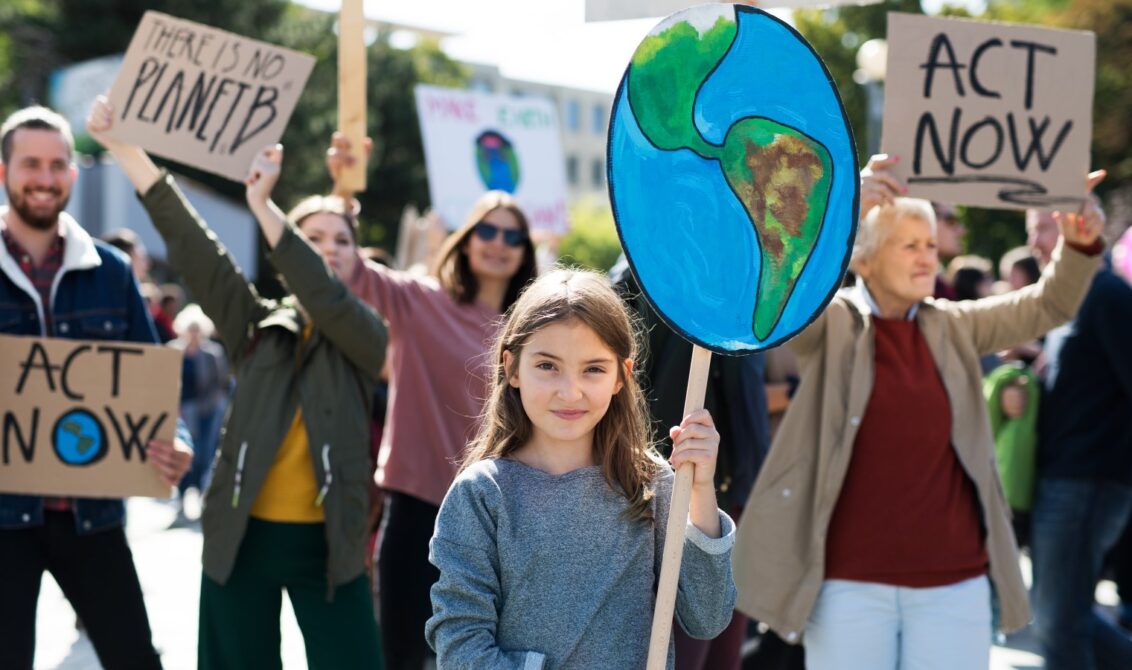
International schools are putting climate change at the heart of education, empowering young people to take action on the environment and find solutions for a cleaner, greener and net-zero world.
It’s young people that have the most to lose from climate change – they have grown up with more exposure to the effects of global warming than their parents and grandparents. Climate education is also a key part of how governments will reach net-zero carbon emissions – by giving young people the skills to understand and cope with the climate emergency and be part of the solution.
Education should help students deal with the unfolding climate crisis
The burden that is placed on teachers is immense. “Teachers are now responsible for ensuring young people are prepared for their future on a rapidly changing planet. Education should not simply provide children with the knowledge they need on the causes and consequences of global warming but we should also provide them with the knowledge and skills they will need to mitigate, and adapt to, the unfolding climate crisis,” says Meryl Batchelder, a United Nations-accredited climate change teacher, and the subject leader for science at Corbridge Middle School in the UK.
Ahead of the crucial Cop26 climate talks in Glasgow last year, unions representing school staff said the climate crisis should become fully embedded in the education curriculum. In April, the British government responded with the launch of its sustainability and climate change strategy for the education system. The strategy states that teachers should “build knowledge through science, geography and citizenship programmes within the national curriculum”.
But experts have said the subject is often missing from the syllabus, side-lined, or miss-taught in schools around the world. A survey of 4,680 teachers in England found that two-thirds felt climate change was not caught in a meaningful way, even though nine out of 10 said the climate was relevant to their subject area.
40% of teachers say they want more time and resources on the climate emergency
In addition, four in 10 said they wanted more time and resources to devote to the climate emergency, on top of more cross-subject collaboration to avoid siloed thinking and to promote change on a grander scale.
Batchelder says “we should recreate a curriculum with climate and sustainability running through like a thread, so pupils don’t just hear about these issues in one or two lessons a week”.
For example, in her classroom she has focused her teaching around work around the UN Sustainable Development Goals (SDGs), with all topics linking to one or more of the goals whilst still covering the national curriculum. In addition, she says teaching the climate emergency is about creating a feeling of empathy for those in countries far away, who are already suffering from climate-induced wildfires, flooding, famine and water scarcity. “It’s not simply our own lives [that] are affected,” Batchelder says.
Outside of the classroom, she says teachers must facilitate ways for young people to take action on the environment as well. “The government has made it clear that they don’t want children marching in the streets, but we need to recognise that planting a couple of trees and having a recycling project in school may not be sufficient to quell their calls for change.”
Many individual teachers make their own choice to take on this responsibility, but climate change remains a controversial subject in some places that many educators may feel unprepared to teach.
Yet 70% of teachers feel ill-equipped to cover these global issues
A Teach the Future Survey last year suggested 70% of teachers feel ill equipped to cover these global issues. Some teacher training institutions, such as Reading University or UCL’s Centre for Climate Change and Sustainability Education, are putting environmental education at the heart of their ITT or PGCE courses to support teachers about to embark on their training.
Batchelder says all teachers both at the early stages of their career and those with decades of practice should have training in how to deliver climate and sustainability education. This is because there is a great deal of anxiety among young people — the immensity of the change can be terrifying — and lots of misinformation, especially on social media.
“There is some concern that in addition to climate anxiety, many young people are starting to display signs of climate apathy,” she adds. “Rather than being driven from the top down, so far climate education has been a piecemeal approach with many students falling through the net, leaving school with a very poor understanding of some of the most important issues they will face in the future.”
Happily, there are an increasing number of online CPD courses that teachers can take from organisations such as the British Council, STEM Learning, ThoughtBox, the Carbon Literacy Project or Leeds DEC. Batchelder herself completed her training with eduCCate Global and the UN in 2019.
In addition, there are a huge number of organisations that now provide teaching resources for children. Batchelder has found the Ministry of EcoEducation and Transform Our World to be excellent sources of collated materials — “they have saved me hours of preparation time”. There are also ideas on how to embed the SDGs from World’s Largest Lesson, Oxfam Education and the WWF.
Finally, she recommends that teachers lead by example. “At home we have solar panels and a ground source heat pump, drive an electric car, don’t fly anymore and grow much of the food we eat,” she says.
Sign up to receive our blog updates
Like what you read and want to receive more articles like this direct to your inbox? Subscribe to our blog and we’ll send you a fortnightly digest of the blog posts you may have missed, plus links to free resources to support your teaching and learning.

